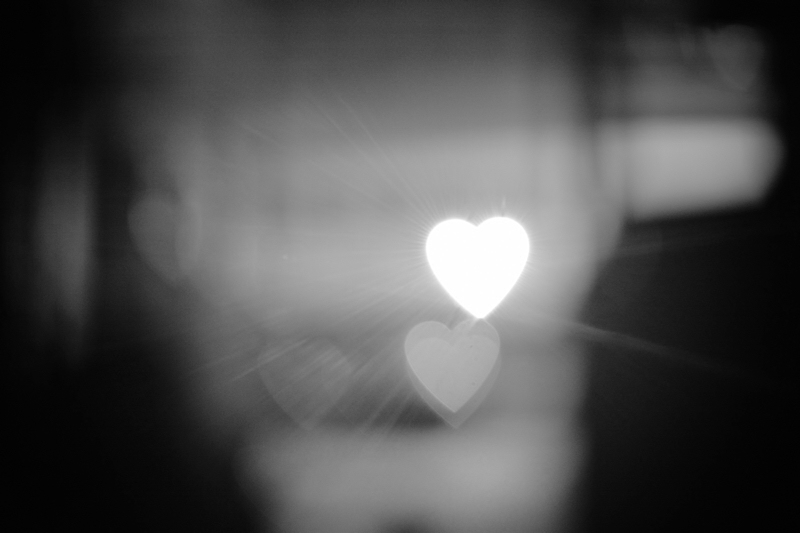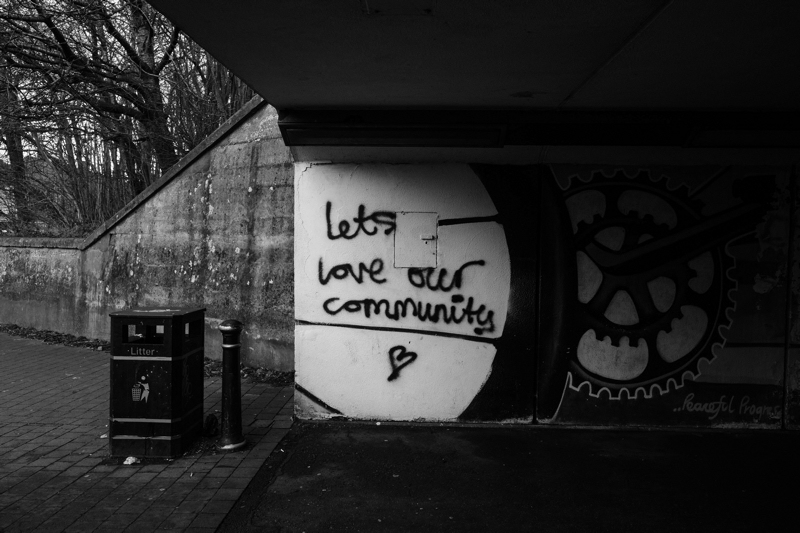Our hearts break open for the pain of the world. For the pain of our planet, whose delicate balance has come undone, and for all her creatures. For mudslides and floods, for rising seas and melting ice, for storms and droughts.
Our hearts break open for the pain of nations. For the cries of war, for the brutality of despots and dictators. For bombs and guns, trained on enemies whose hearts beat the same as ours. For leaders whose greed goes unchecked while their people starve, whose anger defies reason and ignores compassion.
Our hearts break open for the pain of communities. For hatred that marches down the street, and for history that has not yet been relegated to the past. For acts of terror that leave blood in their wake, for cries for help that go unanswered, for every time those sworn to protect instead inflict harm, for the brutality of our carceral state.
Our hearts break open for the pain in our homes. For sickness and death, for abuse and its aftermath. For those we desperately want to help but cannot. For relationships that require constant work, and for the anger that erupts to signal yet more work is needed. For children who struggle to keep up, bodies that no longer do what we want them to, and siblings who lose sight of what is most precious. Our hearts break open for the everyday pain that being connected and vulnerable brings to us.

PHOTO BY BRUCE HONG ON UNSPLASH
Our hearts break open for the pain in our hearts. For the mistakes we’re still beating ourselves up over. For the imperfections we have yet to embrace. For relationships we have lost and fear are irreconcilable, amends we have yet to make with those we have hurt, and the unfinished business of forgiving ourselves. Our hearts break open for life.
If you care about the world, your heart breaks open on a regular basis. If you care about another person, your heart breaks open on a regular basis. This business we call life, it breaks our hearts open wide. Again and again. And as our hearts break open, we have an opportunity to put them back together differently—to put them back together connected to one another.
Juana Bordas, in her book Salsa, Soul, and Spirit, challenges us to move from “I” to “we,” from the individualism rampant in modern-day European and Euro-American society to a collectivism found in Native American, Latino, African, and African-American communities. As Bordas writes from her own experience, “Latinos cherish belonging, group benefit, mutuality, and reciprocity. Interdependency, cooperation, and mutual assistance are the norm.”
Forming real relationships in community means engaging in the vulnerability of exposing our hearts to the world. And it means finding ways to engage in healing our hearts together—as one community, as a “we” instead of simply a collection of individuals. Forming real community means finding ways of mutuality and connection.
Beloved, you are not alone. You are part of a “we” that extends beyond your understanding. Let us knit our hearts together in community and commit ourselves to mutuality, curiosity, reciprocity, and cooperation.
//
Nuestros corazones se rompen y se abren por el dolor del mundo. Por el dolor de nuestro planeta, cuyo delicado equilibrio se ha roto, y por todas sus criaturas. Por avalanchas de barro e inundaciones, por el aumento del nivel del mar y el derretimiento del hielo, por tormentas y sequías.
Nuestros corazones se rompen y se abren por el dolor de las naciones. Por los gritos de guerra, por la brutalidad de déspotas y dictadores. Por bombas y cañones dirigidos a enemigos cuyos corazones laten igual que el nuestro. Por líderes cuya codicia crece incontrolable mientras su gente se muere de hambre, y cuya ira desafía la razón e ignora la compasión.
Nuestros corazones se rompen y se abren por el dolor de las comunidades. Por el odio que marcha calle abajo, y por la historia que aún no ha quedado relegada en el pasado. Por los actos de terror que dejan sangre a su paso, por los gritos de auxilio que quedan sin respuesta, por cada vez que los que juraron protegernos hacen daño, por la brutalidad de nuestro estado carcelario.
Nuestros corazones se rompen y se abren por el dolor en nuestros hogares. Por la enfermedad y la muerte, por el abuso y sus secuelas. Por aquellos que queremos ayudar desesperadamente pero no podemos. Por las relaciones que requieren un trabajo constante, y por la ira que estalla para indicar que se necesita más trabajo. Por los niños que luchan para no quedarse atrás, por los cuerpos que ya no hacen lo que queremos que hagan y por los hermanos que pierden de vista lo más preciado. Nuestros corazones se rompen y se abren por el dolor cotidiano que nos causa el estar conectados y vulnerables.
Nuestros corazones se rompen y se abren por el dolor en nuestros corazones. Por los errores por los que todavía nos estamos castigando. Por las imperfecciones que aún tenemos que aceptar. Por las relaciones que hemos perdido y que tememos son irreconciliables, por las enmiendas que aún tenemos que hacer con aquellos a quienes hemos lastimado y la tarea pendiente de perdonarnos a nosotros mismos. Nuestros corazones se rompen y se abren por la vida.
Si te preocupas por el mundo, tu corazón se rompe y se abre regularmente. Si te preocupas por otra persona, tu corazón se rompe y se abre regularmente. Este asunto que llamamos vida, nos rompe y abre el corazón de par en par. Una y otra vez. Y a medida que nuestros corazones se rompen y se abren, tenemos la oportunidad de volver a unirlos de manera diferente, de volver a unirlos conectados con otros corazones.
Juana Bordas, en su libro Salsa, Alma y Espíritu, nos desafía a pasar del “yo” al “nosotros,” del individualismo desenfrenado de la sociedad europea y euroamericana de hoy en día a un colectivismo que se encuentra en los nativos americanos, los latinos, las comunidades africanas y afroamericanas. Según escribe Bordas a partir de su propia experiencia, “los latinos valoran la pertenencia, el beneficio grupal, la colaboración y la reciprocidad. La interdependencia, la cooperación y la asistencia mutua son la norma.”
Formar relaciones reales en comunidad significa comprometerse con la vulnerabilidad de exponer nuestros corazones al mundo. Y significa encontrar formas de participar juntos en la sanación de nuestros corazones, como una comunidad, como un “nosotros”, en lugar de simplemente una colección de individuos. Formar una comunidad real significa encontrar formas de reciprocidad y conexión.
Amados, no están solos. Son parte de un “nosotros” que se extiende más allá de su comprensión. Unamos nuestros corazones en comunidad y comprometámonos con la colaboración, la curiosidad, la reciprocidad y la cooperación.

